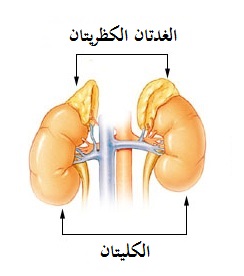Congenital adrenal hyperplasia due to 21-hydroxylase deficiency

Editor-In-Chief: Prab R Tumpati, MD
Obesity, Sleep & Internal medicine
Founder, WikiMD Wellnesspedia &
W8MD's medical weight loss NYC, sleep center NYC
Philadelphia medical weight loss and Philadelphia sleep clinics
| Congenital adrenal hyperplasia due to 21-hydroxylase deficiency | |
|---|---|

| |
| Synonyms | CAH due to 21-hydroxylase deficiency |
| Pronounce | N/A |
| Specialty | N/A |
| Symptoms | Ambiguous genitalia, early puberty, infertility, hirsutism, acne |
| Complications | Adrenal crisis, infertility, hypertension |
| Onset | Neonatal or childhood |
| Duration | Lifelong |
| Types | N/A |
| Causes | Genetic mutation in the CYP21A2 gene |
| Risks | Family history |
| Diagnosis | Newborn screening, blood test for 17-hydroxyprogesterone |
| Differential diagnosis | Androgen insensitivity syndrome, Polycystic ovary syndrome |
| Prevention | None |
| Treatment | Glucocorticoid replacement, mineralocorticoid replacement, surgery for genital abnormalities |
| Medication | Hydrocortisone, fludrocortisone |
| Prognosis | Variable, depends on severity and treatment adherence |
| Frequency | 1 in 15,000 live births |
| Deaths | N/A |
Congenital adrenal hyperplasia due to 21-hydroxylase deficiency (21-OHD CAH) is an autosomal recessive genetic disorder affecting the adrenal glands. It is the most common form of congenital adrenal hyperplasia, accounting for approximately 95% of cases.
Introduction[edit]
21-OHD CAH is caused by mutations in the CYP21A2 gene, which encodes the enzyme 21-hydroxylase. This enzyme is crucial for the production of cortisol and aldosterone, two important hormones produced by the adrenal glands. When 21-hydroxylase is deficient, the body cannot produce these hormones in sufficient amounts, leading to a variety of symptoms.
Symptoms[edit]
Symptoms of 21-OHD CAH can vary widely, depending on the severity of the enzyme deficiency. In severe cases, symptoms may appear in infancy or early childhood and can include salt-wasting crisis, virilization in girls, and early puberty in both sexes. In milder cases, symptoms may not appear until adolescence or adulthood and can include irregular menstruation, acne, and infertility.
Diagnosis[edit]
Diagnosis of 21-OHD CAH is typically made through blood tests to measure levels of hormones produced by the adrenal glands. Genetic testing can also be used to confirm the diagnosis and identify the specific mutation in the CYP21A2 gene.
Treatment[edit]
Treatment for 21-OHD CAH typically involves lifelong hormone replacement therapy to replace the deficient hormones. In some cases, surgery may be required to correct physical abnormalities.

See also[edit]
Ad. Transform your life with W8MD's Budget GLP-1 injections from $49.99


W8MD offers a medical weight loss program to lose weight in Philadelphia. Our physician-supervised medical weight loss provides:
- Weight loss injections in NYC (generic and brand names):
- Zepbound / Mounjaro, Wegovy / Ozempic, Saxenda
- Most insurances accepted or discounted self-pay rates. We will obtain insurance prior authorizations if needed.
- Generic GLP1 weight loss injections from $49.99 for the starting dose of Semaglutide and $65.00 for Tirzepatide.
- Also offer prescription weight loss medications including Phentermine, Qsymia, Diethylpropion, Contrave etc.
NYC weight loss doctor appointmentsNYC weight loss doctor appointments
Start your NYC weight loss journey today at our NYC medical weight loss and Philadelphia medical weight loss clinics.
- Call 718-946-5500 to lose weight in NYC or for medical weight loss in Philadelphia 215-676-2334.
- Tags:NYC medical weight loss, Philadelphia lose weight Zepbound NYC, Budget GLP1 weight loss injections, Wegovy Philadelphia, Wegovy NYC, Philadelphia medical weight loss, Brookly weight loss and Wegovy NYC
|
WikiMD's Wellness Encyclopedia |
| Let Food Be Thy Medicine Medicine Thy Food - Hippocrates |
Medical Disclaimer: WikiMD is not a substitute for professional medical advice. The information on WikiMD is provided as an information resource only, may be incorrect, outdated or misleading, and is not to be used or relied on for any diagnostic or treatment purposes. Please consult your health care provider before making any healthcare decisions or for guidance about a specific medical condition. WikiMD expressly disclaims responsibility, and shall have no liability, for any damages, loss, injury, or liability whatsoever suffered as a result of your reliance on the information contained in this site. By visiting this site you agree to the foregoing terms and conditions, which may from time to time be changed or supplemented by WikiMD. If you do not agree to the foregoing terms and conditions, you should not enter or use this site. See full disclaimer.
Credits:Most images are courtesy of Wikimedia commons, and templates, categories Wikipedia, licensed under CC BY SA or similar.
Translate this page: - East Asian
中文,
日本,
한국어,
South Asian
हिन्दी,
தமிழ்,
తెలుగు,
Urdu,
ಕನ್ನಡ,
Southeast Asian
Indonesian,
Vietnamese,
Thai,
မြန်မာဘာသာ,
বাংলা
European
español,
Deutsch,
français,
Greek,
português do Brasil,
polski,
română,
русский,
Nederlands,
norsk,
svenska,
suomi,
Italian
Middle Eastern & African
عربى,
Turkish,
Persian,
Hebrew,
Afrikaans,
isiZulu,
Kiswahili,
Other
Bulgarian,
Hungarian,
Czech,
Swedish,
മലയാളം,
मराठी,
ਪੰਜਾਬੀ,
ગુજરાતી,
Portuguese,
Ukrainian
